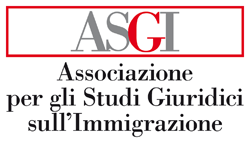di Maurizio Delli Santi
Abstract: Il 9 marzo 2021, il Commissario per i diritti umani del Consiglio d’Europa, dopo la Raccomandazione del 2019, ha pubblicato il Rapporto Una richiesta di soccorso per i diritti umani. Le crescenti lacune nella protezione dei migranti nel Mediterraneo, tracciando un bilancio su quanto richiesto ai 47 Stati membri del Consiglio d’Europa sul rispetto degli obblighi internazionali nel soccorso in mare e nella protezione di rifugiati e migranti. Il documento analizza in particolare quanto sia stato realizzato in cinque macro-aree di intervento: 1) efficacia delle operazioni di search and rescue (SAR); 2) sbarco sicuro e tempestivo (place of safety); 3) cooperazione tra Stati e ONG; 4) cooperazione con gli Stati terzi; 5) vie sicure e legali per l’accesso al continente europeo. Il Commissario conclude il Rapporto richiamando nuovamente gli Stati ad ottemperare ai loro obblighi, esortandoli in particolare a: 1) far cessare i rimpatri per la Libia; 2) non ostacolare e non criminalizzare l’azione delle ONG. Lo studio traccia alcune osservazioni sul rilievo giuridico e politico delle nuove Raccomandazioni, anche alla luce della richiamata giurisprudenza della Corte europea dei diritti dell’uomo e dell’auspicabile interesse della presidenza del G20 affidata quest’anno all’Italia, in cui è stato varato un programma intorno al trinomio People, Planet, Prosperity.
Abstract: On 9 March 2021, the Council of Europe Commissioner for Human Rights, after the 2019 Recommendation, published the Human Rights Relief Request Report. The growing gaps in the protection of migrants in the Mediterranean, taking stock of what is required of the 47 Member States of the Council of Europe on compliance with international obligations in the rescue at sea and in the protection of refugees and migrants. The document analyses in particular how much has been achieved in five macro-areas of intervention: 1) effectiveness of search and rescue (SAR) operations; 2) safe and timely landing (place of safety); (3) cooperation between States and NGOs; (4) cooperation with third states, (5) safe and legal routes to access the European continent. The Commissioner concludes the report by once again calling on states to fulfil their obligations, in particular by urging them to: 1) end returns to Libya; 2) do not hinder or "criminalise" the action of NGOs. The study draws some observations on the legal and "political" importance of the new Recommendations, also in the light of the recalled jurisprudence of the European Court of Human Rights and the desirable interest of this year's G20 Presidency entrusted to Italy, in which a programme was launched around the trinomial People, Planet, Prosperity.




